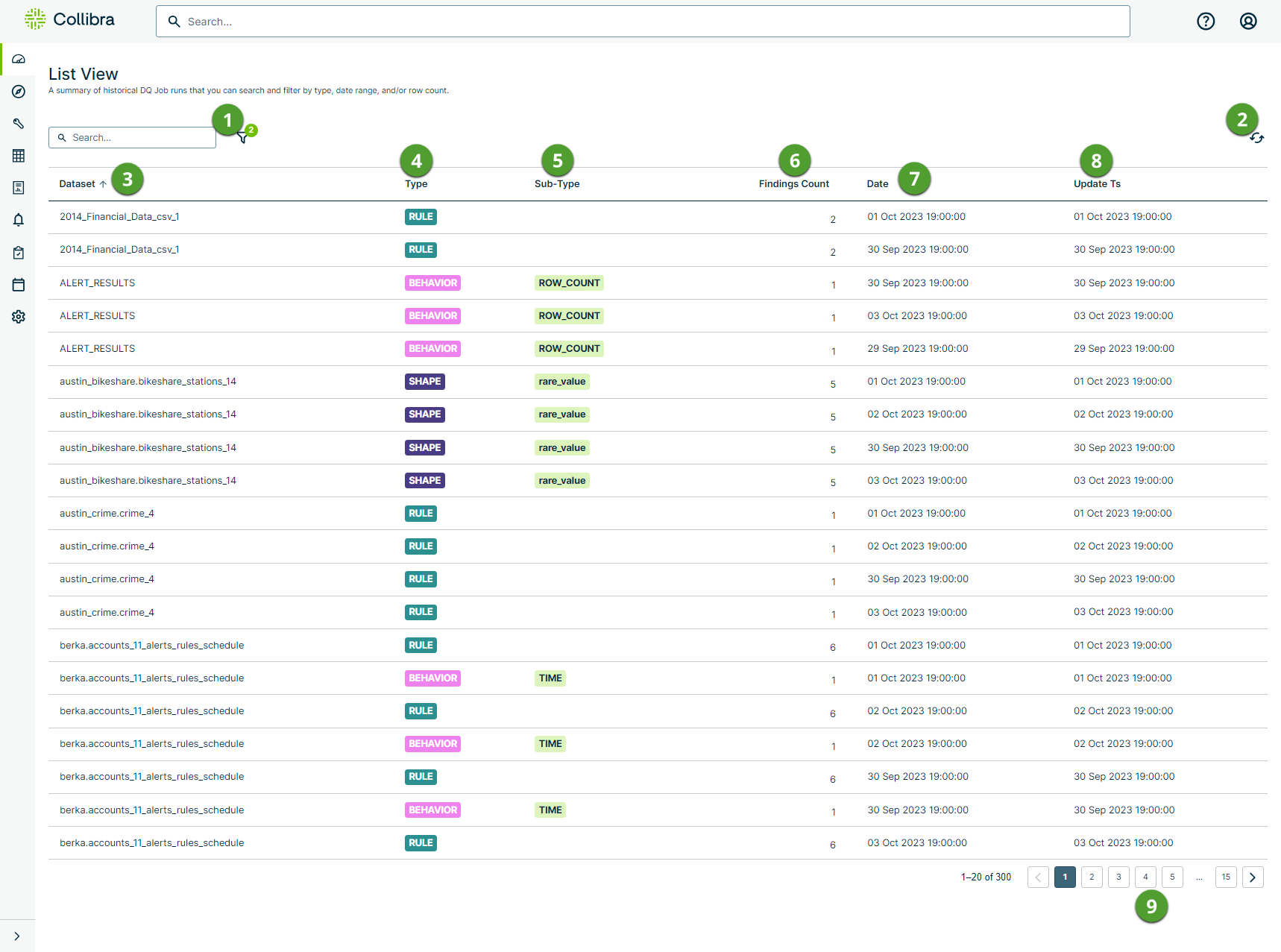List View provides a list of findings across historical job runs that you can search and filter by type, date range, and/or row count. When you have a multitude of data quality issues in your environment, the sheer quantity can be overwhelming. List View can help you manage this.
Search or filter issues by data quality finding type, date range, and/or row count limit to identify the issues that matter most to you and your organization. When you reduce the issue count to only those that meet your search or filter criteria, you can easily identify the issues that you need to prioritize and move into a remediation queue.

| Number | Element | Description |
|---|---|---|

|
Search and filter |
Use the search bar to find items that match your criteria. The search bar can locate items in the Dataset, Type, and Sub-Type columns. For example, to find items with the rare_value sub-type of shape findings, enter "rare_value" into the search bar. You can also use the |

|
Refresh | Refreshes the list view table. |

|
Dataset | The name of the dataset where a finding exists. |

|
Type | The type of finding in the dataset. For example, Behavior, Rule, and Shape. |

|
Sub-Type | The sub-type of the finding. For example, a Behavior finding might include Mean Value and Time sub-types. |

|
Findings Count | The number of findings in a given run. |

|
Date | The timestamp of when the dataset ran in YYYY-MM-DD HH:MM:SS format. |

|
Update Ts | The timestamp of the last processing activity in YYYY-MM-DD HH:MM:SS format. |

|
Page selector | Select a page number or use the arrows to populate more pages (when available). |
Tip Click the name of the dataset or the timestamp in the Date column to open the Findings page.